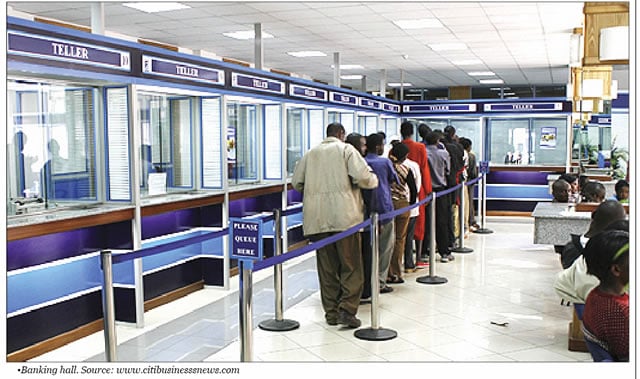After years of record-breaking earnings, Nigeria’s banking giants are entering a new era—one defined less by explosive growth and more by strategic resilience.
Access Holdings Plc, the country’s largest banking group by assets, reported a 23.3% decline in post-tax profit, sliding to ₦215.9 billion ($139.1 million) in the first half of 2025 from ₦281.3 billion ($187.2 million) a year earlier. The dip marks its first profit contraction in five years, underscoring a broader industry recalibration after the foreign exchange windfalls that once inflated earnings began to fade.
Margins tighten as the naira steadies
While Access Holdings managed to grow net interest income by an impressive 91.8% to ₦984.6 billion ($634.4 million), rising impairment charges—up 87.4% to ₦230.1 billion ($148.3 million)—eroded those gains. The group’s gross earnings increased by 13.8% to ₦2.5 trillion ($1.61 billion), fueled by higher interest income, yet the slowdown in foreign exchange revaluation gains weighed heavily on the bottom line.
For Access and its peers, the issue is clear: the extraordinary profits of 2023 and 2024 were largely products of policy shocks, particularly the two major devaluations of the naira and a sharp climb in interest rates. With the currency now relatively stable and the Central Bank of Nigeria (CBN) trimming the Monetary Policy Rate for the first time in five years, the high-yield environment that padded bank margins is finally softening.
A sectorwide correction
Access Holdings is not alone in this adjustment. Tier-one banks including Guaranty Trust Holding Company (GTCO), Zenith Bank, and First HoldCo all recorded profit declines—their first in several years. GTCO saw the steepest drop, plunging 50% in the same period despite celebrating a landmark London Stock Exchange listing in July, which pushed its market capitalization past ₦3 trillion.
Zenith’s earnings also slipped to ₦532.2 billion ($342.9 million)—its first fall since 2016—while First HoldCo reported ₦289.8 billion ($186.7 million), ending a seven-year growth streak.
UBA Plc managed to buck the trend slightly, posting a 6.04% increase in net profit to ₦333.5 billion ($214.9 million), though its pre-tax profit fell for a second consecutive half-year.
Combined, the top-tier banks’ after-tax profits dropped to ₦1.47 trillion ($947.2 million) in H1 2025 from ₦2.19 trillion ($1.46 billion) last year—a contraction that signals the end of a short-lived profit supercycle.
FX gains vanish, real banking returns to the fore
In 2023 and 2024, banks thrived on foreign exchange revaluation gains, as multiple currency devaluations boosted asset values. But 2025’s steadier exchange rates have reversed that fortune.
Access Holdings recorded a ₦66.4 billion ($42.8 million) FX loss, a sharp swing from an ₦80.8 billion ($53.8 million) gain the previous year.
Zenith’s FX income fell 24%, and GTCO flipped from a ₦617 billion gain to a ₦2.6 billion loss.
The naira’s relatively stable performance—hovering between ₦1,480 and ₦1,600 per dollar in recent months—has effectively neutralized one of the sector’s biggest profit levers.
Reforms, resilience, and reality
The CBN’s reform cycle, which once powered a banking windfall, is now testing each institution’s long-term strategy.
While Access Holdings emphasized in its statement that its diversified model and five-year strategic plan remain on track, the broader takeaway is that Nigerian banks are returning to fundamentals—lending, asset management, and efficiency—after a brief era of policy-driven profits.
The challenge ahead will be sustaining earnings growth amid tighter liquidity, cooling interest rates, and cautious borrowers. Yet for the strongest players, this reset may prove healthy: forcing innovation, digital expansion, and better capital discipline in a market that has grown accustomed to easy gains.
The bottom line
The era of effortless profit growth for Nigerian banks appears to be over. As the effects of currency reforms and monetary tightening fade, financial institutions like Access Holdings are being tested on real performance—not policy windfalls.
The next phase of competition will favor those that can innovate beyond traditional banking, cut costs intelligently, and unlock new value in an economy learning to stand on steadier ground.

